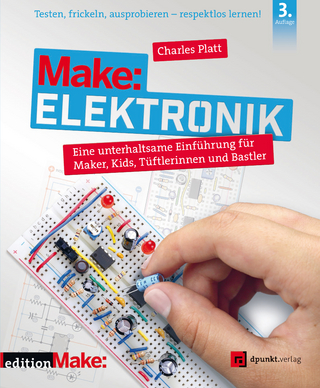
3D Printing and Intellectual Property
Cambridge University Press (Verlag)
978-1-316-60534-9 (ISBN)
Intellectual property (IP) laws were drafted for tangible objects, but 3D printing technology, which digitizes objects and offers manufacturing capacity to anyone, is disrupting these laws and their underlying policies. In this timely work, Lucas S. Osborn focuses on the novel issues raised for IP law by 3D printing for the major IP systems around the world. He specifically addresses how patent and design law must wrestle with protecting digital versions of inventions and policing individualized manufacturing, how trademark law must confront the dissociation of design from manufacturing, and how patent and copyright law must be reconciled when digital versions of primarily utilitarian objects are concerned. With an even hand and keen insight, Osborn offers an innovation-centered analysis of and balanced response to the disruption caused by 3D printing that should be read by nonexperts and experts alike.
Lucas S. Osborn is Professor of Law at the Norman A. Wiggins School of Law, Campbell University, North Carolina. He has spoken about the implications of 3D printing on IP at numerous academic conferences and has published seven articles in leading journals on the topic. Since 2014, he has served as an elected member of the Confidentiality Commission for the Organisation for the Prevention of Chemical Weapons, The Hague, the Netherlands.
Introduction; 1.3D printing technology's capabilities and effects; 2. How 3D printing works and why it matters; 3. Primer on intellectual property law; 4. Can you patent a 3D printable file? (And why it matters); 5. Patents – direct infringement, individual infringement, and 'digital' infringement; 6. Patents – indirect infringement and intermediaries; 7. 3D printing and trademarks: the dissociation between design and manufacturing; 8. Creativity and utility: 3D printable files and the boundary between copyright and patent protection; 9. Design rights, tangibility, and free expression; 10. DMFs and optimizing innovation incentives; Conclusion.
| Erscheinungsdatum | 05.09.2019 |
|---|---|
| Verlagsort | Cambridge |
| Sprache | englisch |
| Maße | 152 x 228 mm |
| Gewicht | 360 g |
| Themenwelt | Mathematik / Informatik ► Informatik ► Theorie / Studium |
| Informatik ► Weitere Themen ► Hardware | |
| Recht / Steuern ► EU / Internationales Recht | |
| Recht / Steuern ► Wirtschaftsrecht ► Urheberrecht | |
| ISBN-10 | 1-316-60534-5 / 1316605345 |
| ISBN-13 | 978-1-316-60534-9 / 9781316605349 |
| Zustand | Neuware |
| Informationen gemäß Produktsicherheitsverordnung (GPSR) | |
| Haben Sie eine Frage zum Produkt? |
aus dem Bereich


